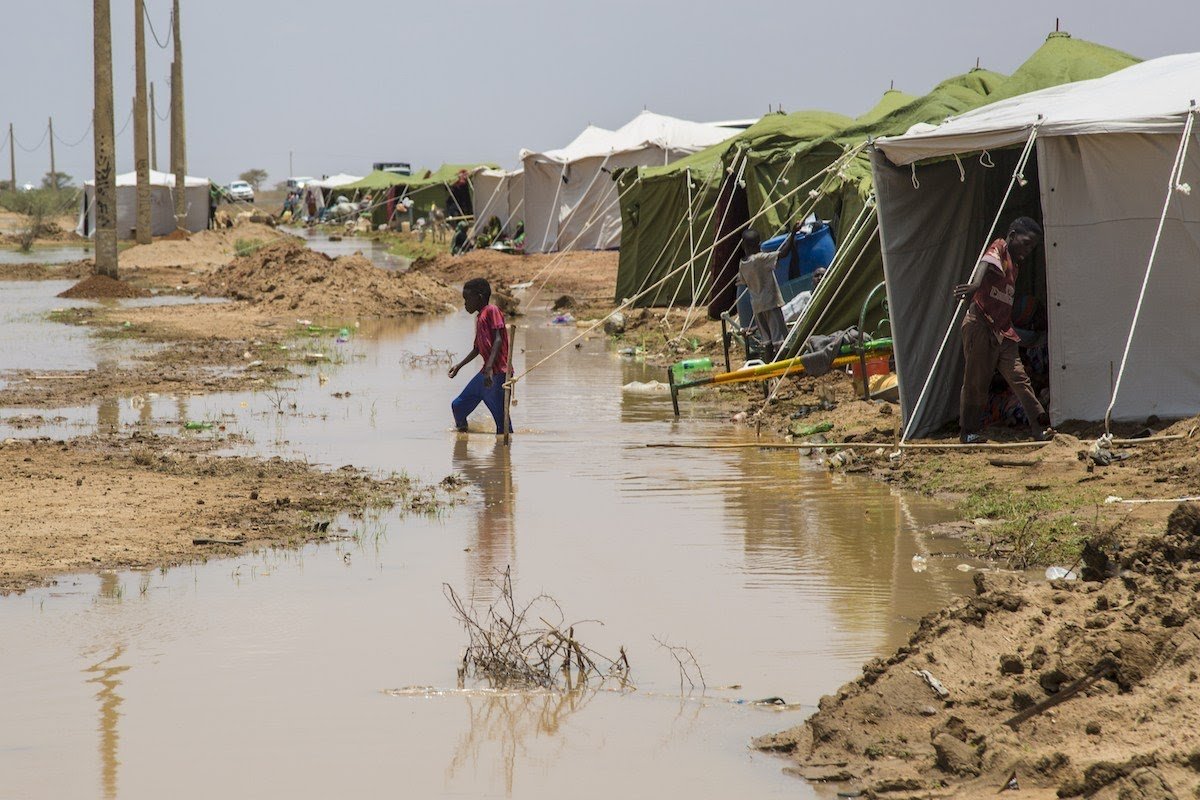KT
The United Nations Food and Agriculture Organization or FAO has pledged tens of millions of dollars to support more than 600 thousand Sudanese families affected by severe flooding caused by record of heavy rainfall across Sudan. A senior FAO official says a joint assessment conducted a few days ago shows that more than two million hectares of farmland have been affected by floods
Briefing officials at the agriculture ministry in Khartoum on Wednesday, FAO’s director of emergency response Dominique Burgeon said an assessment conducted by the FAO and the government found about 600 thousand families have been affected by floods, putting them at risk of dire food shortages.
Burgeon says small scale farmers are already on the verge of food insecurity, noting more than 100 thousand head of livestock were also destroyed in the floods.
“We could see the truly massive impact of the floods not only on commercial farmers; which are critical for the provision of employment for so many people, but also to the small-scale farmers.”
“Those farmers that have just a few fedans and that need these productions to feed their families and specially to feed their children who once again will be most severely affected.” Burgeon told officials.
Early last month, the Sudanese government declared a three-month state of emergency after heavy flooding affected most of the country.
The UN official warns of looming food shortages in Sennar, Blue Nile, and White Nile states along with some parts of Eastern Sudan.
FAO has pledged 70 million dollars to provide food and emergency support to flood- affected Sudanese families, according to Burgeon.
“In the area where we have gone the level of acute food insecurity before the floods was already very high and fear that with the impact of the floods and the fact that they will not be able to harvest; already have to cut the number and quality of the meals.”
He said “Going into a very simple type of food, which is [KISRA] with water, Burgeon says he thinks there is already a risk that the food security situation of these people will deteriorate.”
Sudan’s Minister for labor and Social Development Lina Al Sheikh, who heads the Sudan’s task force on flood response, says part of the 70-million dollars’ pledge will be used to provide food, shelter and medicine to food insecure families.
“There are places that are already facing high levels of malnutrition or we could say they have been at risk of facing food insecurity. We need to rush and intervene to save such communities before they face more levels of food insecurity.” Al Sheikh briefed the meeting.
She called on local civil society, youth groups and other volunteer groups to work with the transitional government and UN agencies to help flood victims.
“If we look at the number of people who lost their income, Al Sheikh said “they will no longer get their daily earning because farms are already destroyed. Most of them used to depend on the daily casual works in those farms. That is apart from other thousands families that depend also on their farms in producing their own food.”
Sudanese authorities say 16 of the country’s 18 states have been affected by heavy rains and River Nile flooding in September.








